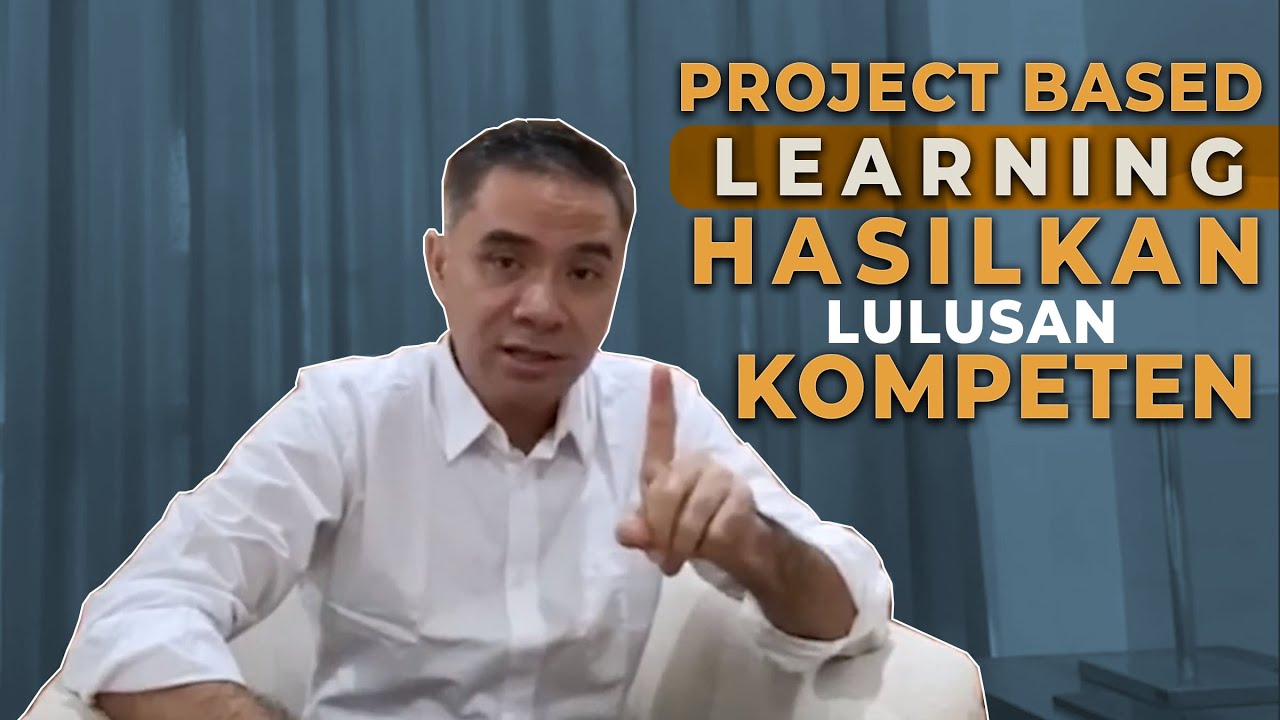Cara Mudah Mempraktikkan Teaching Factory di SMK
Summary
TLDRThe video script discusses the background of a culinary education program that aims to produce competent students through practical learning in a school setting. It outlines the process of dividing students into groups based on their talents and interests, specifically mentioning 'Teaching Factory 9' with six units. Students are trained in production and service, covering topics from recipe standards to hygiene and work systems. The script highlights the benefits students perceive, such as gaining industry experience, inspiring entrepreneurship, and understanding workplace culture. It concludes with students expressing their openness to feedback and the motivation to improve, indicating the program's success in preparing them for future careers or business ventures.
Takeaways
- 📚 The script discusses the concept of 'revanya', which is learning based on products and services through a school setting, aiming to produce competent students.
- 🔍 The first step involves dividing students into groups based on their talents and interests, with a focus on the culinary industry.
- 🏫 The 'Teaching Factory 9' is mentioned as having six units, where students are divided into groups for specialized training.
- 🍽️ One of the units, 'Teras 9', is further divided into two parts: a production kitchen and a café service area.
- 📝 The students receive a week-long briefing on various aspects of the culinary industry, including service, production, standard recipes, pricing, hygiene, and work systems.
- 💡 The training is intended to provide students with a clear direction and understanding of the culinary industry's operations.
- 🌟 Students express that the experience has broadened their perspective on the culinary world and inspired them to consider entrepreneurship.
- 🚀 The script highlights the idea that managing a kitchen in the industry is a valuable learning experience that can prepare students for future work or business ventures.
- 🤔 Students reflect on the benefits of the program, including gaining a better understanding of entrepreneurship, being motivated to start their own culinary business, and learning how to serve and handle customers properly.
- 📈 Feedback from the training is seen as an opportunity for students to evaluate their own work and improve, which is a positive aspect of the learning process.
- 💬 The script emphasizes the importance of peer feedback, as it can inspire and motivate students to do better in their culinary endeavors.
Q & A
What is the main concept behind the 'revanya' mentioned in the script?
-The 'revanya' refers to a learning concept based on products and services through a school, aiming to produce students with good competencies.
What is the initial step in the process described in the script?
-The initial step is to divide the students into groups based on their talents and interests.
How many units are there in the 'teaching factory' mentioned in the script?
-There are six units in the 'teaching factory'.
What are the two main areas that students are divided into on 'Teras 9'?
-The two main areas are the production kitchen and the service area of the café.
What kind of training does the script mention is provided to the students in one week?
-The training includes an orientation on service, production, standard recipes, pricing, hygiene, and work systems.
What is the expected outcome for the students after the training?
-The expected outcome is that the students' work will be more directed and they will gain a better understanding of the culinary industry.
What do the students feel they gain from the experience according to the script?
-The students feel they gain more experience, inspiration to start their own business, and an understanding of work culture in the industry.
What is one of the students' insights mentioned in the script about entrepreneurship?
-One student's insight is that their perspective on entrepreneurship has become more open and they are motivated to start a culinary business.
How does the student in the script feel about receiving feedback on their products?
-The student feels happy because they can provide suggestions or changes to their friends, which in turn motivates them.
What is the purpose of the feedback and evaluation mentioned in the script?
-The purpose is for the students to understand the shortcomings of their products and to use this as material for self-evaluation and improvement.
What is the final inspiration mentioned for the students after graduation in the script?
-The final inspiration is for the students to decide whether they want to work or start their own business after graduation.
Outlines

هذا القسم متوفر فقط للمشتركين. يرجى الترقية للوصول إلى هذه الميزة.
قم بالترقية الآنMindmap

هذا القسم متوفر فقط للمشتركين. يرجى الترقية للوصول إلى هذه الميزة.
قم بالترقية الآنKeywords

هذا القسم متوفر فقط للمشتركين. يرجى الترقية للوصول إلى هذه الميزة.
قم بالترقية الآنHighlights

هذا القسم متوفر فقط للمشتركين. يرجى الترقية للوصول إلى هذه الميزة.
قم بالترقية الآنTranscripts

هذا القسم متوفر فقط للمشتركين. يرجى الترقية للوصول إلى هذه الميزة.
قم بالترقية الآنتصفح المزيد من مقاطع الفيديو ذات الصلة

Project Based Learning (PBL) Produk Roti di SMK Negeri 27 Jakarta

Project Based Learning - Kunci Untuk Lulusan Yang Kompeten

Contoh Presentasi Akademik "Penerimaan Politeknik Negri Medan Prodi AB tahun 2017, 2018, 2019"

INOVASI PEMBELAJARAN 2024 - "KATRISNAN" SD N BUKURAN 1

All Pathways Lead to Success

★ What is MTB-MLE? - by ENI - Education and I
5.0 / 5 (0 votes)
